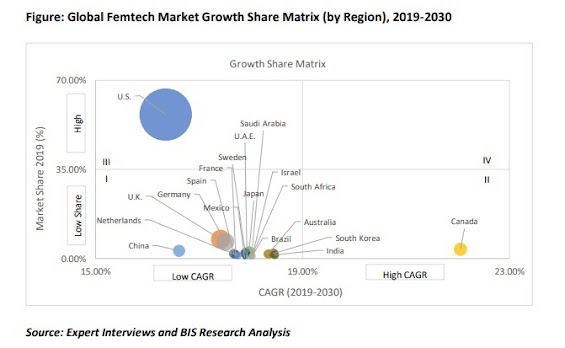Globally, breast cancer in women has transcended lung cancer to account for the most cancer diagnoses and has created an urgent need for innovative advanced therapies. The burden of breast cancer incidence and mortality is growing alarmingly, which can be attributed to the rising population coupled with socioeconomic risk factors that impact breast cancer prevalence.
The global SERD (selective estrogen receptor degrader) therapeutics market was valued at $874.9 million in 2020 and is anticipated to reach $4,085.0 million by the end of 2030, growing at a projected CAGR of 16.7% during the forecast period 2020-2030. Endocrine therapy has long been considered as the mainstay for hormone receptor positive advanced or metastatic breast cancer. SERDs have shown significant potential to treat patients with endocrine-resistant breast cancer and naive patients with breast cancer.
The COVID-19 impact on the global SERD therapeutics market is low to moderate. Ongoing SERD therapy clinical trials were also not significantly impacted by COVID-19. For instance, Zentalis Pharmaceuticals, from its ongoing clinical trials, reported grade three events, including chest pain, back pain, hypertension, among others, which were attributed to COVID-19 and not ZN-c5. Rather, the company’s strong resilience reported further development and progress of under evaluation oral SERDs. Also, the companies are expecting more clinical trial readouts in 2021.
BIS RESEARCH’S TAKE ON THE INDUSTRY
What is the addressable market size and forecast based on region?
North America currently dominates the global SERD therapeutics market. The factors contributing to the high demand for SERD therapy in North America are increasing incidences of breast cancer and the early launch of pipeline products in the U.S.
What are the most advanced pipeline products in the global SERD therapeutics market?
Until 2018, Faslodex, developed by AstraZeneca Plc, was the only treatment available for estrogen receptor-positive, HER-2 negative, and advanced-stage breast cancer in postmenopausal women that have previously not undergone any hormonal therapy. Also, it is approved as monotherapy for the first-line treatment and as a combination therapy with Palbociclib. Multiple generics debuted in the following years in several countries, thereby impacting the sales of blockbuster Faslodex.
Most of the companies are targeting second-line treatments in postmenopausal women for breast cancer. The companies consider under-development SERDs as best-in-class oral assets with improved efficacy. Zenopharm LLC received small business innovation research (SBIR) phase I and II grant for ZB716 to perform and test tolerability, safety, and pharmacokinetics in humans.
What is the impact of novel drugs on available therapies?
The recent launch of novel and emerging therapies for the treatment of breast cancer have demonstrated significant impact on the uptake of years old therapies in breast cancer. Kisqali and Verzenio have also been successful products in breast cancer treatment. Moreover, a number of novel therapies are under evaluation and express positive outcomes in breast cancer treatment. The limitations of available therapies and room for innovation of revolutionary therapies in breast cancer are likely to support the uptake of emerging therapies.
What is the potential of SERD therapy in breast cancer treatment?
Nearly 80% of all breast cancers are hormone receptor-positive, of which approximately 70% are estrogen receptor alpha (Er-α). Inhibition of ER signaling is the focus of various breast cancer treatments, each with distinct mechanisms of action. Many patients eventually acquire resistance toward the available endocrine therapies leading to disease continuance and death. This remains a major challenge with the current standard care of breast cancer.
Since a majority of endocrine therapy resistance is attributed to ER-α based activity, shutting down the ER-α signaling could be a potential strategy to subdue this resistance. It can be achieved with the removal of ER-α from the cancerous cells by employing selective estrogen receptor degraders (SERDs). Preclinical and clinical results of SERDs have demonstrated a significant reduction in the number of resistance mechanisms in breast cancer patients. Although various SERDs are under evaluation, there is still space for the innovation and development of more efficacious SERDs with superior degradation characteristics.
RELATED MARKET REPORTS
Global Female Technology (Femtech) Market - Analysis and Forecast, 2019-2030
ABOUT BIS HEALTHCARE
BIS healthcare vertical offers intelligence in the healthcare technology market for precision medicine, robotics and imaging, life sciences and biopharma, medical devices, digital health, and other emerging healthcare technologies, covering the entire industry spectrum. In the past eight years, BIS Healthcare has published more than 50 reports under the precision medicine banner. Additionally, BIS Research has been nominating ‘Top 25 Voices’ in precision medicine on its InsightMonk platform for the past two years successfully.








No comments:
Post a Comment